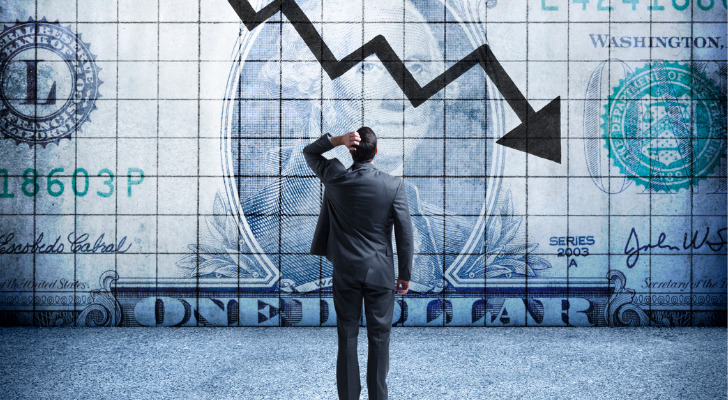It’s no secret that there’s a lot of scary things going on in the world right now — the continuing COVID-19 pandemic and the war in Ukraine chief among them. These world events also have impacts on the financial world. COVID-19 caused a massive downturn in some segments of the economy, and we are seeing in real time the impact of Russia’s war in Ukraine — notably in the form of rising gas prices following the Biden administration’s decision to stop importing oil from Russia.
Things may continue to spiral. Financial services giant Goldman Sachs recently released a study putting the chances of a full-on recession at 35% over the next year. Economists at the firm also cut their expansion estimates from 2.0% to 1.75%.
A recession doesn’t have to mean your portfolio is decimated. With a bit of planning and the right investment choices, you can ride out a recession and come out on top.
For help investing with a recession on the horizon, consider finding professional help using SmartAsset’s free financial advisor matching service.
Recession Definition
Recession is one of those phrases that nearly everyone hears on the news or social media, and might even uses casually — but a lot of people probably don’t actually know exactly what it means. Recession is not just a generic phrase for a difficult economic period — it has a very specific definition.
The technical definition of a recession is two consecutive quarters of negative economic growth. Generally, recessions last between six and 18 months. The impact of the recession depends on how long the recession lasts and how bad the negative growth is.
Why a Recession May be Coming

While a recession isn’t caused by any single factor, the war in Ukraine seems to be Goldman’s number one reason to anticipate a recession in the coming year. The sanctions on Moscow, especially the one banning the sale of Russian oil, has the potential to have serious impacts — especially in Europe, but also in the U.S.
Of course, though Goldman only puts the chance of a recession at 35%, that may be too high for comfort for investors and workers. Still, this prediction means the economists at Goldman think there is a bigger chance there won’t be a recession than that there will be one.
How to Prepare for the Recession
The good news is that if you anticipate a possible recession, you can prepare your portfolio to limit the damage.
Some examples of good investments for a coming recession include:
- Core sector stocks. While the market overall may take a downturn, there are some sectors where people will have to still spend money. This includes healthcare, utilities and consumer goods. Look to these sectors for investments that will have a decent chance of succeeding even during a recession.
- Real estate. Investing in real estate produces reliable income. This could mean purchasing a rental property and running it yourself, or you could invest in a real estate investment trust (REIT) to earn some income without having to take on all of the responsibilities of being a landlord.
- Precious metals. Investments like gold and silver are classic recession investments. Due to this, prices often go up when a recession hits. If you want to prepare, invest in these now so that you can reap the benefits.
There are some non-investment steps you can take to prepare for the recession as well. Consider forming an emergency fund now so that you are prepared if the recession results in you losing your job. Generally, a fund to cover expenses for three or six months is a good idea. You should also look at your budget and see if there are places you can trim some fat. Eating out less or canceling a subscription service now could give you a bit more flexibility down the line if a bad recession hits.
The Bottom Line

Goldman Sachs experts say there is a 35% chance of a a recession coming in the next year. While that may be scary, there are steps you can take now to prepare your finances, including investing in core sector stocks, getting into real estate and creating an emergency fund.
Investing Tips
- A financial advisor can help you prepare for a coming recession or any other financial questions. Finding a qualified financial advisor doesn’t have to be hard. SmartAsset’s free tool matches you with up to three financial advisors who serve your area, and you can interview your advisor matches at no cost to decide which one is right for you. If you’re ready to find an advisor who can help you achieve your financial goals, get started now.
- Getting the right mix of investments is important no matter the financial conditions. Get a snapshot of what your portfolio should look like with SmartAsset’s asset allocation calculator.
Photo credit: ©iStock.com/DNY59, ©iStock.com/SARINYAPINNGAM, ©iStock.com/elenaleonova
